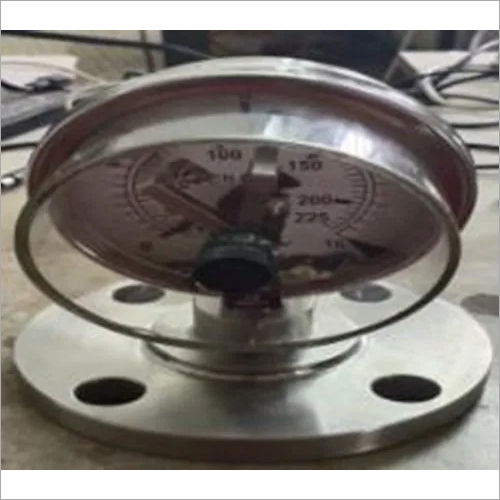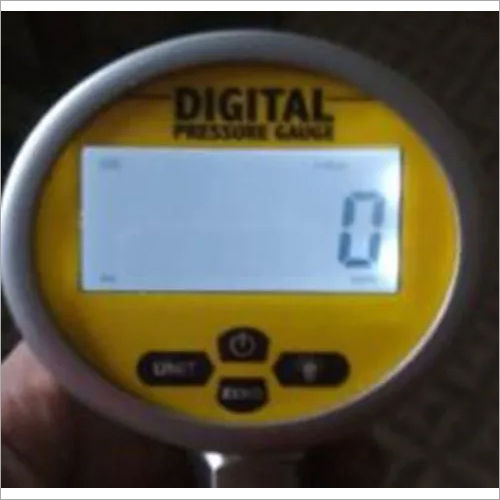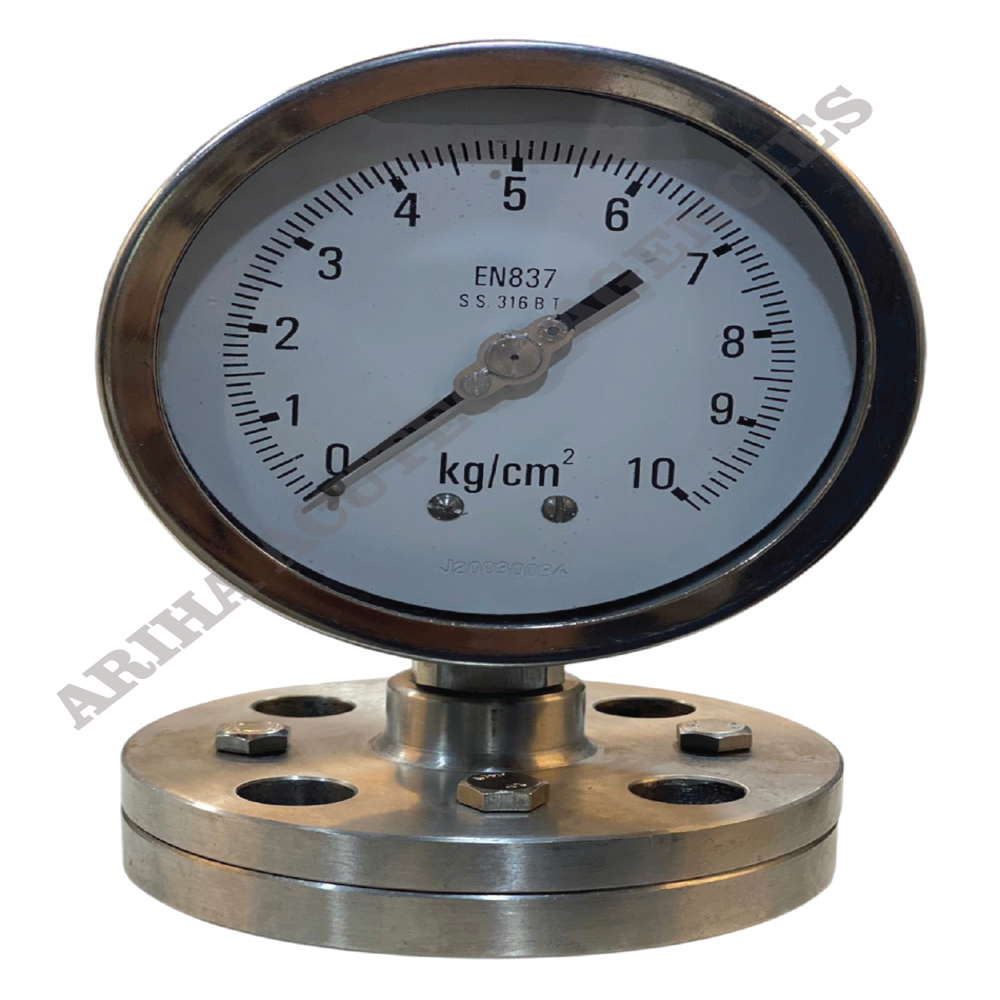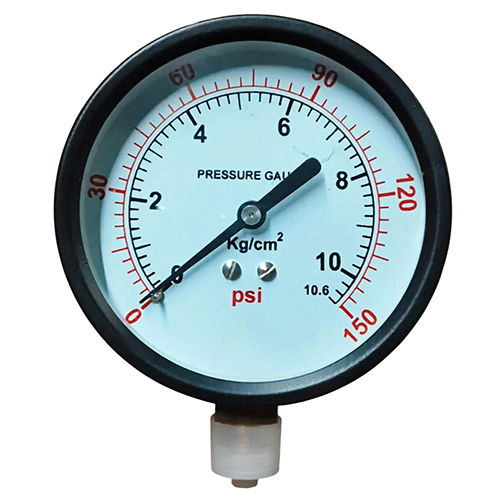Electric Contact Pressure Gauge
Price 800 INR/ Piece
Electric Contact Pressure Gauge Specification
- Grade
- Industrial
- Display
- Analog
- Material
- Aluminium
- Usage
- Industrial
- Dial Material
- Glass
- Pointer Material
- Aluminum
- Processing Type
- Standard
- Product Type
- Pressure Gauge
- Color
- Silver
- Mount Type
- Surface
- Finishing
- Galvanized, Antique, Polished, Matte
- Measure Pressure Of
- Water, Steam, Oil, Gas
Electric Contact Pressure Gauge Trade Information
- Minimum Order Quantity
- 50 Pieces
- Payment Terms
- Cash in Advance (CID)
- Supply Ability
- 2000 Pieces Per Month
- Delivery Time
- 8 Days
- Main Domestic Market
- Maharashtra
About Electric Contact Pressure Gauge
Price :
Price will be changed according to product details min Price Range Available 600/pc
Versatile Pressure Monitoring
This electric contact pressure gauge is suitable for various fluids, including water, steam, oil, and gas, making it a highly versatile instrument for industrial applications. Its ability to accurately measure different types of media helps ensure optimal equipment performance and safety throughout operational processes.
Durable Construction and Design
Crafted from high-quality aluminum with several finishing options such as galvanized, antique, polished, and matte, this gauge is both durable and corrosion-resistant. The surface mount design, along with a clear analog display under a sturdy glass dial, provides reliable readings in challenging industrial environments.
Trusted by Indian Manufacturers and Suppliers
This pressure gauge is supplied by reliable manufacturers, suppliers, and traders across India. Its industrial-grade build quality and precise performance make it a preferred choice for businesses seeking dependable pressure monitoring solutions.
FAQs of Electric Contact Pressure Gauge:
Q: How does the electric contact pressure gauge work in industrial applications?
A: The electric contact pressure gauge operates by detecting and measuring the pressure of fluids such as water, steam, oil, or gas within industrial systems. As the pressure changes, the aluminum pointer moves across the glass analog dial, providing easy-to-read measurements and allowing operators to monitor and control safe operating conditions.Q: What materials are used for constructing the gauge and why are they beneficial?
A: The gauge is constructed using durable aluminum for the body and pointer, and glass for the dial, with various finishes including galvanized, antique, polished, and matte. These materials offer corrosion resistance, strength, and longevity, making the gauge suitable for rigorous industrial environments while also providing a professional appearance.Q: When should this pressure gauge be selected over digital alternatives?
A: This analog gauge is ideal in situations where continuous, reliable pressure readings are essential, especially where electrical interference or harsh conditions might compromise electronic displays. Its ease of reading and mechanical durability make it suitable for many traditional and modern industrial operations.Q: Where can the electric contact pressure gauge be installed?
A: Designed for surface mounting, this gauge can be installed on equipment panels, pipes, or process vessels commonly found in industrial plants, factories, or refineries across India. It fits seamlessly into existing monitoring systems due to its standard processing compatibility.Q: What is the process for using and maintaining this pressure gauge?
A: To use the gauge, mount it securely on the designated surface, connect it to the process line, and regularly observe the dial for pressure readings. Maintenance is straightforward: periodically check for dial clarity, ensure the pointer moves freely, and keep the gauge clean to prevent buildup of industrial residue and ensure measurement accuracy.Q: What are the primary benefits of using this pressure gauge in industrial settings?
A: Key benefits include accurate monitoring of critical process pressures, durable construction for extended service life, versatile compatibility with multiple fluids, and straightforward installation. These features help maintain system safety, reduce downtime, and support efficient plant operations.

Price:
- 50
- 100
- 200
- 250
- 500
- 1000+
More Products in Other Pressure Gauge Category
Digital Pressure Gauge
Price 7800.00 INR / Piece
Minimum Order Quantity : 40 Pieces
Finishing : Matte, Antique, Galvanized, Polished
Grade : Industrial
Product Type : Pressure Gauge
Usage : Industrial
Diaphragm Sealed Gauge
Price 3500.0 INR / Piece
Minimum Order Quantity : 20 Pieces
Finishing : Antique, Matte, Polished, Galvanized
Grade : Industrial
Product Type : Diaphragm Sealed Gauge
Usage : Industrial
Low Pressure Capsule Gauge
Price 1500 INR / Piece
Minimum Order Quantity : 16 Pieces
Finishing : Antique, Galvanized, Polished, Matte
Grade : Industrial
Product Type : Pressure Gauge
Usage : Industrial
Commercial Pressure gauge
Price 275.0 INR / Piece
Minimum Order Quantity : 10 Pieces
Finishing : Polished
Grade : A
Product Type : Commercial Pressure gauge
Usage : Industrial

 Send Inquiry
Send Inquiry Send Inquiry
Send Inquiry




